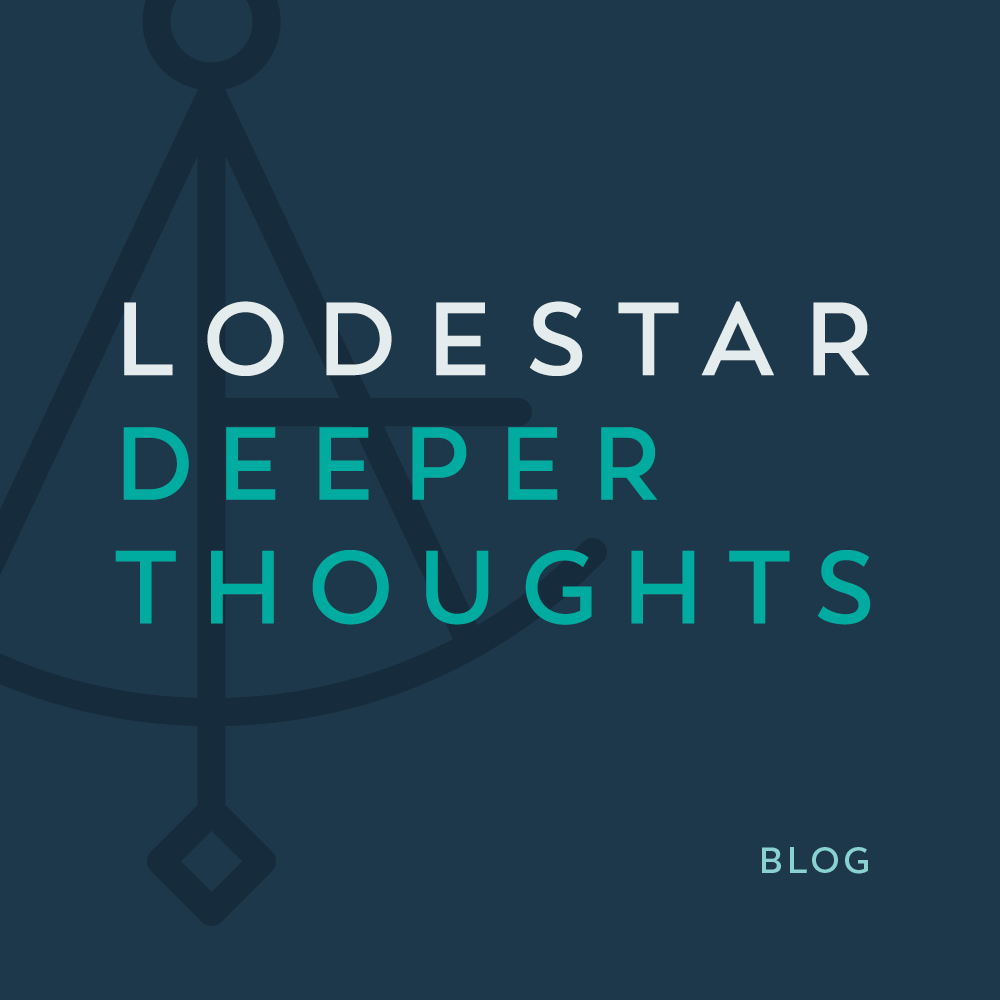

In case you missed it, LodeStar’s own Alayna Gardner was recently announced as one of Housing Wire’s 2023 Rising Stars. Of course, we’ve known she’s a Rising Star for some time now. But we’re excited to see her getting her due throughout the industry as well. Congratulations, Alayna!
I mention this not only to give Alayna a little recognition, but also becauMse it brings up two of my favorite topics: marketing and the rise of youth in an industry that, quite frankly, could use a little youth. And yes, I know I wrote a bit about this recently, and not for the first time, either.
It’s been said once or twice that the mortgage industry tends to “eat its young,” when it comes to development and mentorship. There’s not enough emphasis on recruiting or, especially, developing the next generation of thought leaders. I don’t think it’s systemic by any means, but it’s not entirely wrong. And yet, even as too many firms ignore the input of their younger leaders, they continue their quest for the origination industry’s Holy Grail: the first-time homebuyer. It used to be that Millennials were that target, but increasingly, we’ll find Generation Z coming into its own home buying power, too.
Seeking the Holy Grail of mortgage origination
I’ve spoken more than a few times at conferences, and we’ve discussed it more than once on LodeStar’s Lending Leaders, what I believe Millennials (my generation) really want from lenders. And, in case you missed those events or episodes, it’s not an end to end automated solution. Yes, we want automation for the mind-numbing tasks (e.g. signing 50 pages of closing documents by hand or spending 30 minutes on the phone spelling and respelling our middle names for a loan production assistant). But we want a human being—a knowledgeable and helpful human being—to be available to help us sort through what we don’t know about the homebuying process. AI will be able to help there a bit. But we’ll always want that accessible expert to share their wisdom when it comes to making what could be the largest purchase of our lives.
And yet, far too many lenders who are attempting to market to my generation miss that point. They rely on catchy (or, more often, not so catchy) ad campaigns or tout their latest online application process. But, in the worst cases, they come up as snake oil salesmen, hoping to spin us toward the products that they’d like to sell, rather than towards the products that best fit our needs.
Millennials and Gen Z are not the same people; nor do they view the world in identical fashion
First thing’s first when marketing to first time homebuyers. Millennials and Gen Z’ers are not the same. For frame of reference, let’s assume Millennials are those born between 1980 and 1995, while Gen Z’ers were born between 1995 and 2012. So, the latter are just coming into their careers and purchase power. Gen Z and Millennials certainly have some things in common (just as all generations do). The more cynical among us like to think that neither generation “wants to work,” which simply isn’t true for the vast majority of us. But, if we’re going to paint millions of people with broad brush strokes, the members of Generation Z, for example, having seen their parents struggle through the Great Recession, tend to be more entrepreneurial. They’re more likely to start their own businesses or embrace the gig economy. They have higher expectations, too. After all, they started their lives (more or less) with iPhones and streaming. We Millennials experienced the wonder of having new tech introduced to us.
Younger generations are watching what you do, not just what you say.
Millennials experienced one of America’s most robust economies during their early years in the workforce. So they also experienced the stark pivot and ensuing turmoil of the Great Recession, but from a different perspective than Gen Z. Having watched their parents and Millennials struggle through that period, Gen Z tends to be more debt averse and financially aware. And while it would appear that Millennials show more connection with issues of social justice, it also seems clear that most Gen Z’ers connect brands with how they behave from a perspective of civic responsibility.
Both younger generations also grew up in a period rife with hollow corporate “non-apologies” or more visible (thanks to the 24/7 news cycle and social media) malfeasance on the part of bad corporate actors. Often, these actions directly conflicted with the mission statements or branding of the bad actors. Just as some would argue Generation X was the first American generation not to truly trust some of the American institutions unquestioningly supported by their forefathers (government, for example), Millennials and Gen Z’ers watch what you do as well as what you say.
Because of that, authenticity and transparency are at the core of any successful marketing campaign for younger consumers. I’d suggest customer service and support is also important, although, increasingly, just about everything is becoming disposable or replaceable. So if you’re gearing up to make Gen Z and/or the Millennial generation the core of your forecast for the next ten years, don’t make the mistake of assuming. And be damn sure that, when you tell them something in your bid for their business, you’re completely sincere. Brand loyalty is also definitely a thing among the younger consumers. And they have long memories when it comes to those using “spin” as a marketing tactic.
We at LodeStar are grateful to all of our clients, friends and colleagues who take the time to view Deeper Thoughts. Please consider having a look as well at some of our other great content, including our podcast, “LodeStar’s Lending Leaders,” and “A Tale of Two Mortgages: an original webcomic for the mortgage industry, presented by LodeStar.” As always, your feedback is welcomed and appreciated!
[grwebform url=”https://app.getresponse.com/view_webform_v2.js?u=tyvjN&webforms_id=63500601″ css=”on” center=”off” center_margin=”200″/]